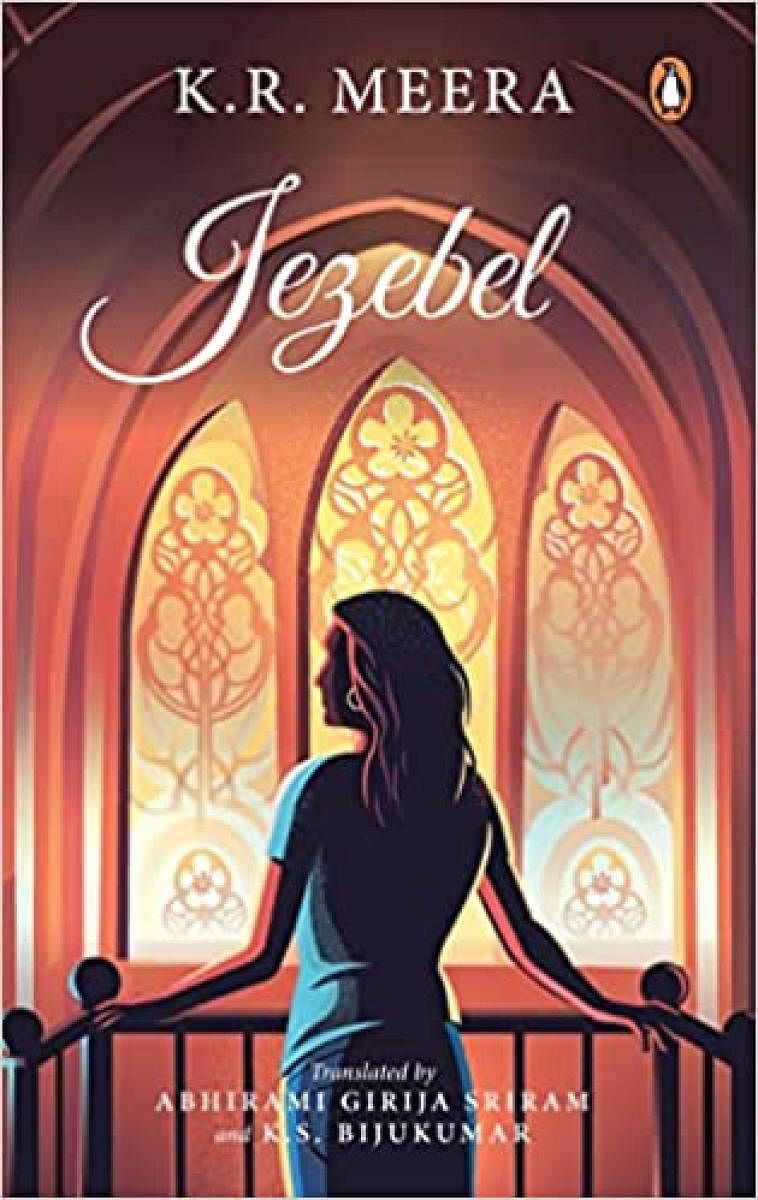
The release of award-winning Malayalam author K R Meera’s latest novel, Jezebel, translated by Abhirami Girija Sriram and K S Bijukumar, has coincided with the celebration of India’s 76th year of independence. The date of publication takes on a subtle irony: The novel compels one to think about questions that are powerful and continue to haunt us even today. Are women’s bodies commodities? Who decides how we honour our emotions and our bodies? Do a man and a woman sleep together for the sake of love or for the sake of society? Why hasn’t political freedom extended to societal freedom? These are questions that Eve may well have pondered over after the Fall.
The novel’s plot in a nutshell: Jezebel John’s marriage is fixed with Jerome who, like her, is a doctor. Originally intended for Tresa, a distant cousin, who vanishes on the day of the ‘girl-seeing’, Jerome does not match Jezebel’s desultory imaginings. Indeed, she finds his ‘thick pink moist lips’ repulsive. Meanwhile her prospective father-in-law George, on learning her name, remarks, ‘How can any true Christian name his daughter Jezebel!’ Replies her dad, ‘Jezebel was a prophet. She was the only woman to challenge Prophet Elijah. I haven’t seen a stronger woman in the Bible.’ Pat comes the rejoinder, ‘And I haven’t seen a more accursed woman in the Bible. The name has to be changed at any cost!’
The opening sentence: ‘As she stood in the family court, pelted with the blame of having paid a contract killer to murder her husband, Jezebel had this revelation: To endure extreme torture, imagine yourself as Christ on the cross.’ Apart from plunging the reader into the thick of the conflict, the opening confidently lays out both the structure and the substance of the novel.
Individual freedom
The ruminations of the original Eve have been lost to us, but, from those of the eponymous heroines of Jezebel — yes, there are two, one the vilified Biblical queen and the other the young Malayali Christian doctor seeking release from an abusive marriage — we get valuable insights into the complexities that have delineated the idea of individual freedom, vis-à-vis the body, in patriarchal societies. They occur to us during the defence lawyer’s cross-examination of Jezebel the doctor — which is as inept as it is crass — by means of numerous flashbacks. These subtle cameos reveal deeper psychological insights into the nature of individual identity. Meera makes her point unobtrusively: the twin forces of religion and family have crucified the individual.
Despite the gravitas of its themes, the plot unfolds in a dialogue-driven drama as the travails of Jezebel pile up. While George is unquestionably the master villain, the marriage is a pretence for Jerome to cover his secret relationship with another male doctor, Avinash. In short, it’s a farce that turns into a nightmare when Jerome forces himself on Ann Mary, a minor, who is in Jezebel’s temporary care. Even as Jezebel is considering the option of annulment, the story takes one more dramatic turn: Jerome has an accident and his brain injury puts him in a coma for good.
With her husband in this condition, what choice does a woman, a doctor, have but to be a paragon of self-sacrifice — if she is to avoid social censure? The triangle of Jezebel, Jerome and Avinash reveals how their emotions — indeed, their very selves — are immured in their bodies in different ways, suffering, dying or finding a new path, as Jezebel eventually takes the step towards resurrection and renewal.
Sweeping grandeur
Using the myth of Queen Jezebel as a cultural glue, Meera drives home the point that when it comes to societal beliefs, despite their empowered status, the lives of modern women continue to be ritualistic in nature. It is all about endurance and sacrifice. Yet, so skilful is the telling that the tragic fate of Jezebel the queen — who was thrown to her death from the palace window — is redeemed by the doctor Jezebel whose quiet courage is, in its own way, majestic. By making the reader privy to her intense soul-searching, Meera makes us follow her thought footprints and thus connect with other characters and their backstories.
Though replete with biblical allusions, rich in its use of metaphors and coloured by the Kerala milieu, the narration has a certain raw power to it that gives it a wider reach.
This comes from the expert blend of myth and modern reality, but it also owes much to the seamless incorporation of other women’s stories: those of Ann Mary and her mother Anitha; Tresa; Lilly, Jezebel’s mother-in-law; her mother Sara and her grandmother Susanna. With so many generations of women, the novel gains a sweeping grandeur. It becomes the story of every woman. And a more authentic version of the myth.
The flawless translation makes it all the more powerful, cementing Meera’s reputation further.